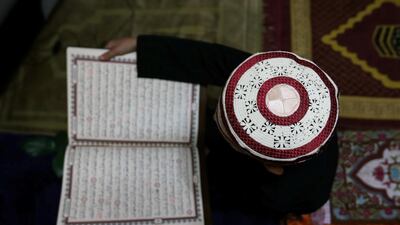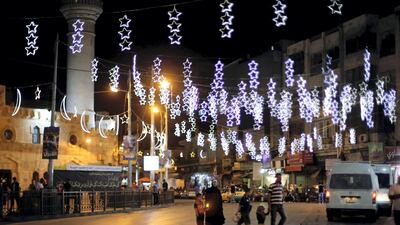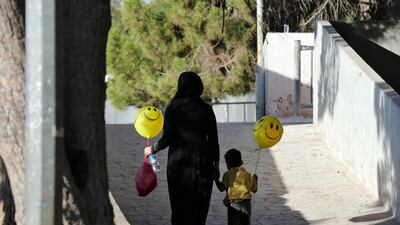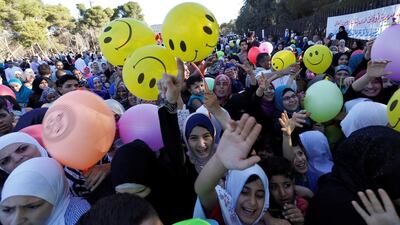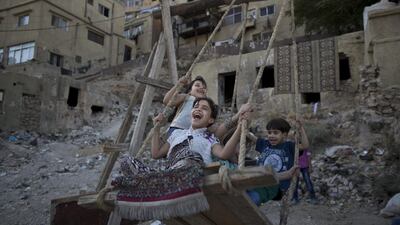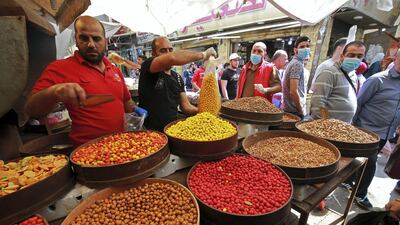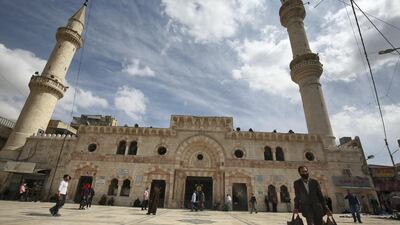Jordanian authorities have lifted almost all coronavirus restrictions since last Ramadan although vaccination rates in the kingdom remain low.
Officials justified the move as necessary to spur economic activity, after a sharp slowdown in the last decade, aggravated by the pandemic.
Only 40 per cent of Jordan's 10 million population have been vaccinated, Health Ministry data shows.
Unlike last Ramadan there are no curfews and mosques can house a full capacity of worshippers. The only rule worshippers should observe is to wear a mask. Restaurants and other businesses are no longer restricted in how many customers they can serve.
Official figures show at least 14,000 people have died of Covid-19 in Jordan, almost double the number of deaths at the onset of last Ramadan. More than 1.68 million infections have been recorded, compared with 665,000 last Ramadan.
Those travelling to Jordan are no longer required to show a negative PCR test before they board flights to the kingdom or cross its land borders. But they are still required to fill out a Covid-19-related data sheet online.
Government departments work shorter hours during Ramadan and are open from 10am to 3pm. The shorter hours do not apply to the private sector.
Here’s everything you need to know about Ramadan 2022:
What is Ramadan?
Ramadan is the ninth and holiest month of the Islamic – or Hijri – calendar. It is also believed to be the month the Quran was revealed to the Prophet Mohammed.
Muslims fast from sunrise to sunset on every day of the month, which is typically either 29 or 30 days in length.
As well as abstaining from food and drink, Muslims strengthen their faith through prayer and increased recitation of the Quran.
When does Ramadan begin?
Ramadan will most probably start on April 2. Jordan has traditionally followed Saudi Arabia by declaring the start of Ramadan on the same day as Riyadh, although Jordan’s Religious Affairs Ministry assigns staff to look for the new crescent moon on the 29th day of Shaban to determine when the next month begins.
What are the Covid-19 rules in Jordan during Ramadan?
There are no longer any coronavirus rules in place in Jordan, except for mask-wearing indoors in places such as shopping centres and supermarkets.
Vaccination is not mandatory but businesses, such as supermarkets and most shops, are required to ask customers for proof of vaccination before letting them in. The requirement, however, is rarely enforced.
Are group iftars allowed in Jordan during Ramadan?
They are now allowed after having been banned last Ramadan. Restaurants are also open for customers dining in.
What etiquette should I follow if I’m not fasting this Ramadan?
Eating in public during fasting hours in Ramadan is frowned upon in Jordan and is technically illegal, so could result in arrest or a fine. This also applies to smoking.
Alcohol shops are closed throughout the holy month.
